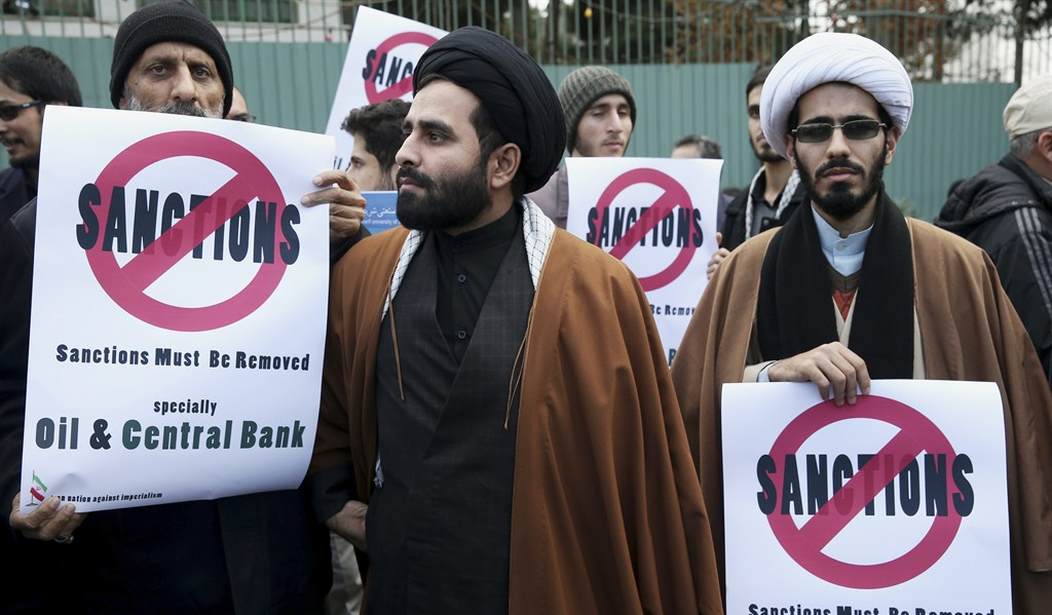It is high time to face reality. The extension of talks in Vienna suggest that despite flexibility in negotiations on the part of P5+1 (the U.S., Britain, France, Russia and China, plus Germany), Iran believes it can get a more conciliatory deal by holding out another seven months.
From all known accounts, Washington is reported to seek assurance that Iran will remain at least one year away from testing a nuclear weapon. This is the best of the terms we can get from the Iranians side. In fact, all negotiations, at this point, deal with the number and scale of centrifuges. The idea that Iran has violated every nuclear agreement it has ever signed and should not have the enriched uranium to produce a bomb is not on the negotiating agenda. Iran will have that fissile material and could produce a weaponized missile at a time it chooses to do so, all comments and assurances to the contrary notwithstanding.
Legislators here and abroad continue to assert a sanctions regimen offers leverage which modifies the Iranian stance. Like a mantra, Obama administrators contend sanctions brought Iran to the negotiating table. Perhaps this is true, albeit the point isn’t provable, but sanctions have not halted the path to nuclear enrichment. In fact, negotiations have led to a modification in the sanctions regime and have provided a “legitimate” pathway to further enrichment and plutonium development.
At the same time these negotiations are underway, the putative leader of Iran, Ayatollah Ali Khamani, called for Israel’s elimination, writing that Israel “has no cure but to be annihilated.” This statement was issued against a backdrop of Iran continuing the military dimensions of its nuclear program in defiance of the Framework of Cooperation signed in November 2013 with the International Atomic Energy Agency and the P5+1 Joint Plan of Action.
Recommended
In addition to violating agreements it has signed, Iran continues to foment terrorism throughout the region with proxies in Hezbollah and rebel groups in Yemen. Most significantly, it has promoted incitement among Palestinians and supported the rabid comments of President Mahmoud Abbas.
As I see it, the Vienna negotiators on our side of the table have bent over backwards to make a deal including a willingness to offer Iran enough fissile material to produce a bomb in a year, in clear defiance of the Nuclear Proliferation Treaty to which Iran is a signatory.
Despite what many politicians assume, sanctions cannot inflict enough pain to moderate opinion among Iranian leaders. Moreover, as long as talks go on, sanctions rules will be violated by Turkey, Russia and China.
In treating Iran as a legitimate state instead of a rogue state, the promotion of terrorism is ignored as are the existential threats against Israel. Iran is regarded as merely one of the states in the community of nations. Its aspiration for a Shia Crescent a matter for another time.
Hence the choice is stark: an Iran with nuclear weapons or an attack. Clearly no one wants war and there is no doubt this war would not be easily contained. The Sunni nations would most likely avert their gaze to an attack on Iran secretly breathing a sigh of relief. But there would be consequences in widespread terrorism through the Middle East and beyond.
On the other hand, an Iran with nuclear weapons or the capacity to build them is the worst of choices since rational deterrence is not likely to work with a regime driven by theological assumptions. Nuclear proliferation would be the logical outcome with Saudi Arabia first in the queue to purchase these weapons from Pakistan. A nuclear exchange of any kind would set back mankind centuries and a doomsday scenario becomes increasingly plausible.
So the best of bad choices is a bad choice, but almost an inevitable one. The Iranians know we don’t want to fight and they know as well they are at the table with a “full house.” All our side has is a “pair of deuces.” So whether the bad news comes in seven months or seven days is irrelevant. The news is bad and the choices remain stark.

























Join the conversation as a VIP Member